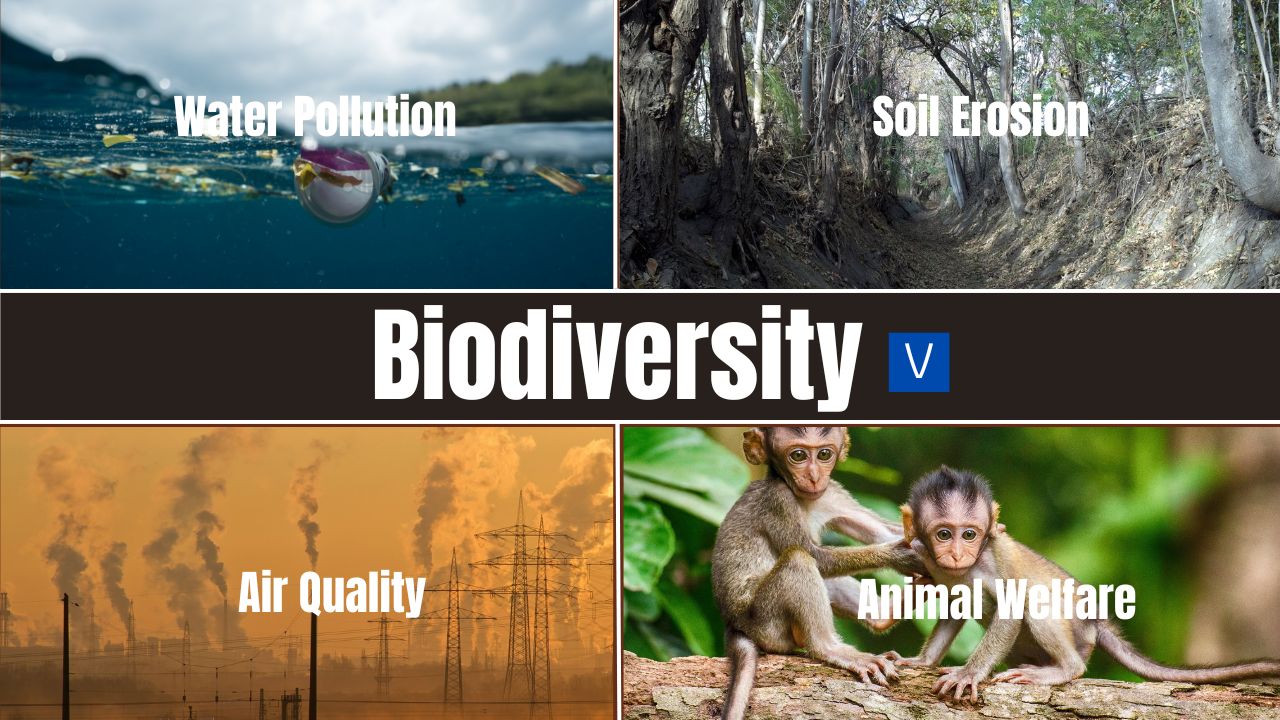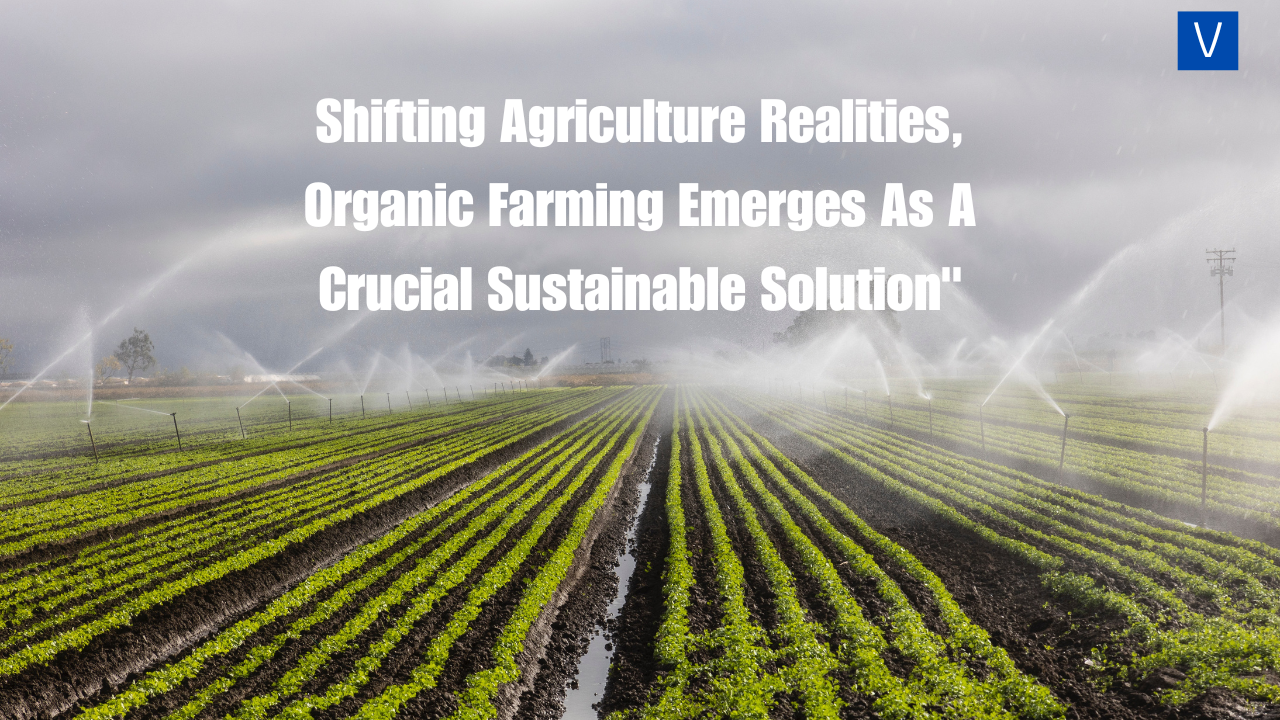Nowadays farmers across the world, cultivate large quantities of varieties to feed the large population. Due to the high population, the resources are limited. To meet the demands of the population, cultivators switch to inorganic manure instead of organic manure for their crops. The use of chemicals that are present in inorganic manure meets the demands of the population anyway, but chemicals from inorganic manure slowly destroy nature from the roots of the soil.
Like as increasing water pollution, increased soil erosion, Increased biodiversity, Reduced air quality, etc. After realizing, what we had gone through in past years with inorganic farming, slowly started practicing organic farming. In this chat with version weekly, we are going to discuss, What is organic farming. What are the environmental benefits of organic farming? are explained in a good manner. Let’s See.
What Is Organic Farming?
Organic farming is a system of agricultural production that relies on practices that preserve biodiversity, enrich soil and water resources, and support animal health and welfare. Organic farmers use crop rotations, cover cropping, and other techniques to build soil health and fertility, and they avoid the use of synthetic pesticides, herbicides, and fertilizers.
 “Howard” is considered the father of modern organic farming. He was a British agricultural scientist who developed the concept of “soil fertility” and promoted the use of compost and other organic materials to improve soil health. He said, “The soil is the mother of all life, and if we destroy the soil, we destroy ourselves.”
“Howard” is considered the father of modern organic farming. He was a British agricultural scientist who developed the concept of “soil fertility” and promoted the use of compost and other organic materials to improve soil health. He said, “The soil is the mother of all life, and if we destroy the soil, we destroy ourselves.”
Organic farming has a significant positive impact on the environment. As the world’s population grows, organic farming will become increasingly important for protecting the environment and ensuring food security.
Today’s impact of organic farming in the world shows the importance of organic agriculture and the environmental benefits of organic agriculture. For Instance:
- In the United States, organic farming has been shown to reduce water pollution by 40% and greenhouse gas emissions by 30%.
- In Europe, organic farming has been shown to increase biodiversity by 50% and improve air quality by 10%.
- In India, organic farming has been shown to reduce soil erosion by 70% and improve the health of farm animals by 20%.
A number of experts have spoken about the environmental benefits of organic farming. For example, the United Nations Environment Programme (UNEP) has stated that “organic agriculture can help to mitigate climate change, reduce water pollution, and improve air quality.” The Food and Agriculture Organization of the United Nations (FAO) has also stated that “organic agriculture can contribute to the conservation of biodiversity and the improvement of soil quality.” Let’s see what are the environmental benefits of organic farming and sustainable solutions to environmental problems.
Environmental Benefits Of Organic Farming
There are many environmental benefits to organic farming. Some of the most important benefits include:
Reduced water pollution: Organic farming practices help to reduce water pollution by reducing the need for synthetic fertilizers and pesticides. Synthetic fertilizers and pesticides can pollute waterways and groundwater, and they can also harm aquatic life.
Reduced soil erosion: Organic farming practices help reduce soil erosion by increasing organic matter and promoting healthy soil structure. Soil erosion can lead to sedimentation in waterways, which can harm aquatic life and infrastructure.
Increased biodiversity: Organic farming practices help to increase biodiversity by providing habitat for beneficial insects and other wildlife. Biodiversity is important for a healthy ecosystem, and it can also help to control pests and diseases.
Improved air quality: Organic farming practices help to improve air quality by reducing the emissions of greenhouse gases and other pollutants. Greenhouse gases contribute to climate change, and other pollutants can harm human health.
Better animal welfare: Organic farming standards typically require farmers to provide their animals with more space and better living conditions than is required by conventional farming standards. This can improve the health and well-being of farm animals.

Organic farming can help to mitigate climate change. A study by the Rodale Institute found that organic farming can sequester up to 40% more carbon in the soil than conventional farming. This is because organic farming practices help to build soil organic matter, which is a key component of soil that helps to store carbon.
Organic farming can improve water quality. A study by the University of California, Davis found that organic farming reduced nitrate leaching by up to 70% compared to conventional farming. Nitrate leaching is a major source of water pollution, and it can contribute to algal blooms and other water quality problems.
Organic farming can protect biodiversity. A study by the University of Wisconsin found that organic farming increased bird abundance by up to 50% compared to conventional farming. Organic farming practices help to provide habitat for beneficial insects and other wildlife, which can help to control pests and diseases.
Organic farming can improve human health. A study by the University of Aberdeen found that organic milk had higher levels of antioxidants and lower levels of pollutants than conventional milk. Antioxidants are important for protecting human health, and contaminants can be harmful to human health.
There are many examples of the environmental benefits of organic farming. For example, a study by the University of California, Davis found that organic farming reduced soil erosion by up to 80% compared to conventional farming. Another study by the University of Minnesota found that organic farming reduced greenhouse gas emissions by up to 40% compared to conventional farming. The environmental benefits of organic farming are clear, and they are becoming increasingly important as the world’s population continues to grow.
Conclusion
The environmental benefits of organic farming are clear. Organic farming can help to reduce water pollution, soil erosion, and greenhouse gas emissions. It can also improve air quality and animal welfare. As the world’s population grows, organic farming will become increasingly important for protecting the environment and ensuring food security. Organic farming, justifying the statement “Shifting Agriculture Realities, Organic Farming Emerges As A Crucial Sustainable Solution” 100%.
I hope this article was informative. If you have any questions, please let versionweekly.com know.
